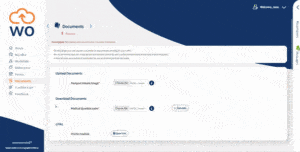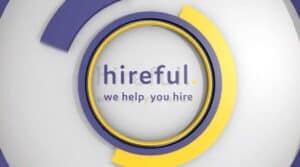It has been described as the biggest change to UK employment law for the past 20 years and it all kicks in on April 6th, 2020.
So what exactly is the ‘Good Work Plan’ and what can HR and hiring teams do to make sure they’re ready for this employment legislation overhaul?
We’ll be taking a look at exactly what’s changing and then provide some practical tips on making sure your onboarding process is fully prepared. Read on…
STEP 1: KNOWLEDGE
What is the Good Work Plan?
The Good Work Plan is a bundle of changes to the way that employment law works. These changes are being introduced in response to the recommendations of the Taylor review – this was an independent report that looked for ways to strengthen employment rights and improve working lives.
Since the publication of the Good Work Plan in 2018, a range of additional changes have been introduced to refine and extend some areas of the legislation.
The changes, which apply to England, Scotland and Wales, are all set out in the:
- The Employment Rights (Miscellaneous Amendments) Regulations 2019
- The Employment Rights (Employment Particulars and Paid Annual Leave) (Amendment) Regulations 2018
The Good Work Plan reforms cover a range of employment issues such as holiday pay, redundancy protection and statutory sick pay but the main change affecting the onboarding process are the rules relating to new starters and written particulars.
What changes are being made to new starter documentation?
Currently, an employer has a period of two months after a new hire has started to provide them with ‘written particulars’. This means providing them with the terms of their employment, including:
- How long a job is expected to last
- How much notice is required
- Details of eligibility to sick leave/pay
- Details of paid leave (maternity/paternity)
- Details of any probationary period
- Remuneration, including pay
- Days and times work is required
- Any training provided which is required
From April 6th, this information, also referred to as a ‘section 1 statement’, needs to be provided on or before the new hires’ first day on the job. All the details also need to be contained within a single document.
Why is this a problem for HR and hiring teams?
Recent research by Webonboarding has shown that more than two-thirds (71%) of UK hiring teams are currently failing to complete all onboarding documentation prior to a new hire starting.
The ‘Welcome Aboard’ survey, involving 2,000 office-based workers, found that over a quarter (27%) of incoming workers have to wait up to a month before all starter paperwork has been completed.
From April 6th, 2020 this kind of delay in providing written particulars will become a breach of employment law.
Does this law apply to all new hires?
After the initial publication of the Good Work Plan, the legislation relating to written particulars was revised. Originally the changes referred only to ‘employees’ but this has subsequently been revised to ‘workers’.
So when the new legislation comes into effect, it’s not just employees who will be entitled to receive a written statement of their terms on day one – it will apply generally to anyone classed as a worker.
What remains something of a grey area, is the exact definition of a ‘worker’. Generally, however, a worker is someone who doesn’t have a contract and has the option to accept work that’s offered or not.
Whereas, an employee has a contract, has a commitment to provide a set amount of work and benefits from employment rights such as holiday entitlement and sickness pay.
What about agency workers?
From April 6th, 2020, employers have a legal duty to provide all agency workers with a ‘Key Facts Page’. This is a document, no longer than two A4 pages, which clearly sets out and explains:
- The nature of the contract
- The minimum rate of pay
- Who is responsible for paying them
STEP 2: ACTIONS
Prepare for change
The most important first-step is simply to be informed about what’s changing. While the April 6th deadline is looming, there’s still plenty of time to review existing processes for new hires and to plan any required changes.
While the details of the legislation can be complex, the overall aim of the changes remains simple. The general objective is to ensure that employers provide workers with clear communications about their role, on or before they start.
Review processes
One of the challenges facing hiring teams is the inherent inefficiency of traditional onboarding methods. The reliance on paper-based documentation and manual processes makes onboarding a slow and unwieldy administrative task.
Copies of paper contracts and offer letters need to be sent out to candidates, creating an unwieldy process that can take weeks to complete. It helps to explain why so many hiring teams struggle to finish administrative tasks prior to candidates starting.
An effective way to prepare for the Good Work Plan is therefore to harness the benefits of digital communications. Cloud-based apps and services allow documentation to be managed in real-time.
Webonboarding is a digital management solution which handles all new starter documentation and preparations via a simple online portal. The use of digital signatures removes the need for any paper documents to be posted.
It’s a way of working that helps to ensure that new hires receive all of the information required by the Good Work Plan prior to their first day.
Make a plan
With April 6th, 2020 marked off in the diary and a solid understanding of what changes are required before the deadline, a roadmap can be created. Time and resources can be scheduled in to review documentation and onboarding processes.
With good planning, the Good Work Plan legislation can be handled with minimal disruption or risk. For those companies who don’t plan ahead, the legislation could prove costly. One of the changes being implemented is increased penalties for employment law breaches – rising from £5,000 to £20,000.
Find out more about how Webonboarding can help you with the Good Work Plan
Welcome to WordPress. This is your first post. Edit or delete it, then start writing!




